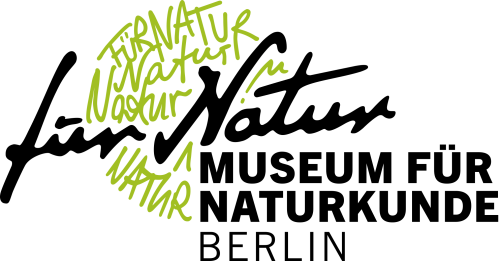Call for Papers
Call for Papers: Courtesy of the Donor: Economic, Political and Social Aspects of Gifts to Museums
Museum für Naturkunde Berlin

Workshop at the Museum für Naturkunde Berlin on September 29–30, 2022:
Courtesy of the Donor: Economic, Political and Social Aspects of Gifts and Endowments to Museums in the 19th Century
Museums could not exist without gifts and endowments. In the 19th century, gifts were often the only means by which museums could establish and expand their collections. This was especially true of the research collections held by newly established and reformed universities. The artworks, books, artifacts and objects of natural history that were donated at this time could not have been more diverse with respect to their materiality, their value and their reception. They nevertheless share the same historical context – that is, the politics, economics and science of the period between the late Enlightenment and the age of Imperialism, a time of economic growth and political crises. As a result, they can provide insights into the constellations of power and lines of conflict that characterized these eras.
Previous research has considered gifts both in the context of courtly and diplomatic relations[1] and in the framework of biographical studies of patrons and explorers.[2] The workshop will expand on this research and examine the history of gifts as part of the history of the modern museum. It will take as its point of departure the thesis that donations to collections were based on historically specific, complex processes of valuation, legal codes, social networks and political interests. This paves the way for a discussion of epistemic, economic, political and legal issues. These lines of inquiry also go hand in hand with a variety of methodological approaches, ranging from the analysis of collection economies to provenance research.
The aim of the workshop is to examine gifts and gift-giving practices with reference to specific institutional, organizational and legal frameworks. Special attention will be given to three subject areas in particular:
- Social capital. The transfer of a collection to a museum can be interpreted, fundamentally, as a form of social interaction entailing certain social interests and needs. It appears safe to assume that gifts could have enabled donors to collaborate with recipients on research or allowed them to build and expand networks with powerful and influential people—high-ranking civil servants, for example. But was that all that was involved in gift giving? Were donations to museum collections not also—or even primarily—a form of moral transaction in the sense of Marcel Mauss’s theory of gift exchange?[3] How important were reciprocate in the form of social or symbolic capital? What were the consequences of decisions to transfer collections to public museums at no charge?
- Economic contexts. The fact that collections were given to museums without remuneration raises the question not just of what form “gifts in return” may have taken but also what role the value of the gifted collection played, however that value may have been determined. Was it, for example, viewed as an argument in the implicit request for a gift in return? How was value measured? Were there links to trade and industry? Does 19th-century gift giving support the conclusion reached by studies into the history of collecting in the early modern period—namely, that the networks of individuals involved in exchanging gifts were always based in part on commercial interests?
- Political influence. Political conditions were potentially a factor in two respects: On the one hand, it was only within certain political constellations that a gift would be given in the first place. Only under specific political conditions, for example, did a gift acquire the political significance that its donor may have wished. On the other hand, political developments or events sometimes provided a crucial incentive for the giving of the gift. This was true particularly of benefactors who sought to use their material circumstances to exert an influence on the state and social order. The institutionalization of collections in public museums thus raises questions regarding the dependencies of state bodies and the legal framework involved. At the same time, it leads us to ask whether unremunerated contributions were associated with specific political ideas, such as those evoked by the language of the “common good” and “utility.”
This workshop is part of the project “Rocky Pasts? Acquisitions of the Mineralogical Museum in Berlin (1770–1840)” in the Humanities of Nature department at the Museum für Naturkunde Berlin. It is sponsored by the Fritz Thyssen Foundation.
If you are interested, please submit a presentation proposal (approximately 250 words) along with a short CV by May 15, 2022. The workshop will take place at the Museum für Naturkunde Berlin on September 29–30, 2022. It will be held in English. Expenses for travel and accommodation can be reimbursed.
Please send your proposals or any questions you may have to:
Dr. Angela Strauß, E-mail:
[1] See, for example, Zemon Davis, Natalie. The Gift in Sixteenth-Century France. Oxford 2000; Gerritson, Anne et.al. (ed.), Global Gifts. The Material Culture of Diplomacy in Early Modern Eurasia, Cambridge 2018; Giloi, Eva. Monarchy, Myth and Material Culture in Germany 1750-1950, Cambridge 2011.
[2] See, for example, Frey, Manuel. Macht und Moral des Schenkens. Staat und bürgerliche Mäzene vom späten 18. Jahrhundert bis zur Gegenwart, Berlin 1999; Delbourgo, James. Collecting the World. The Life and Curiosity of Hans Sloane, Cambridge 2017.
[3] Graeber, David. Toward an Anthropological Theory of Value. The False Coin of Our Own Dreams, New York 2001.